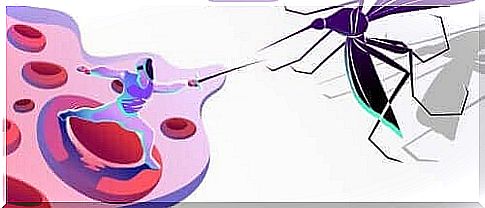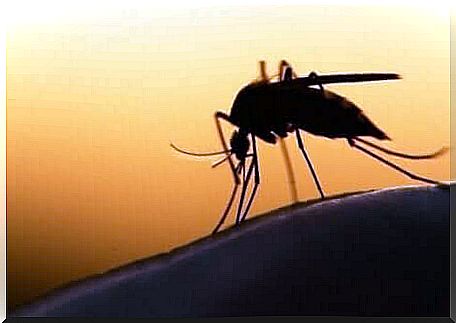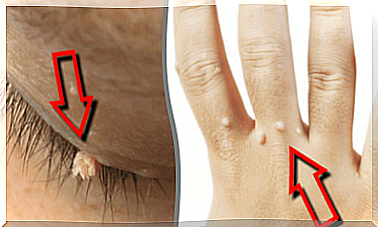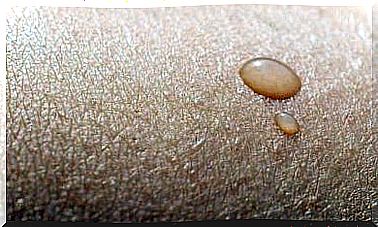The Causes And Symptoms Of Malaria

Malaria is a parasitic infection that regularly occurs in tropical regions with a warm climate. Experts estimate that in 2016 there were about 216 million cases of malaria in 91 countries.
This is about 5 million more cases of illness than a year earlier. Because it can be fatal, it is important to understand the causes and symptoms of malaria. Malaria can be contracted in the following ways:
- The best-known way in which people can contract malaria is through the bite of a mosquito that carries the parasite.
- In addition, it is a disease that pregnant women can transmit directly to their unborn babies.
- However, that is not the only way of direct transmission between people. It can also spread through blood transfusions from a donor who has had the disease.
In terms of prevention, there was an attempt in 1997 to develop a synthetic malaria vaccine. The members of Manuel Elkin Patarroyo’s scientific team were responsible for its development.
However, the results obtained with this vaccine were questionable. It reached a maximum effectiveness of 28% in South America. In 2010, the WHO classified the vaccine as “inactive.”
What causes malaria?

This disease is the result of an infection by a particular type of parasite that uses a specific type of mosquito as a host. The parasite is Plasmodium falciparum and the mosquito is of the genus Anopheles.
Once the mosquito bites a human, the parasites enter the bloodstream and go to the liver. In this organ, they mature and produce another form of parasite called merozoites. These merozoites then reenter the bloodstream and infect the red blood cells. Once there, they multiply and the cells break down within 48 to 72 hours.
The causes of most of the symptoms associated with malaria include:
- The release of merozoites into the bloodstream.
- Anemia due to the destruction of red blood cells.
- Large amounts of hemoglobin released into the bloodstream after the breakdown of red blood cells.
What are the symptoms of malaria?
The symptoms of this disease usually appear a few weeks after the bite of an infected mosquito. However, some types of malaria parasites can lie dormant in the body for up to a year. The following signs and symptoms are typically characteristic of clinical cases:
- Fever
- Chills
- Headache
- Nausea and vomiting
- Muscle aches and fatigue
In addition to the above complaints, patients with malaria may also experience other symptoms. For example, they may experience excessive sweating, abdominal or chest pain and coughing.
Some people with malaria experience cycles of malaria attacks. The attacks usually start with tremors and chills, accompanied by a high fever and then excessive sweating. After that, the patient’s temperature returns to normal.
Complications

Malaria is a disease that can be fatal. This is especially true for the cases caused by the variety of certain parasites that are common in tropical regions of Africa. In most cases, deaths result from one or more serious complications, including the following:
- Cerebral malaria: In some cases, the blood cells with parasites block the small blood vessels in the brain. As a result, inflammation of the brain can occur, leading to seizures and even coma.
- Hypoglycemia: Too low blood sugar can lead to a comatose state or death.
- Respiratory problems: If pulmonary edema occurs due to malaria, it can cause breathing problems.
- Failure of certain organs to function correctly: Malaria can cause organs such as the spleen or liver to fail. This can eventually even lead to death.
- Anemia: This is a decrease in the number of red blood cells.
The treatment of malaria
Before we talk about treatments, we must first distinguish between the different forms of malaria. Treatment of the uncomplicated form, which involves parasites not of the falciparum species, usually involves a drug called chloroquine. Patients take the drug orally.
In addition to chloroquine, there are other alternatives for mild malaria cases such as quinine or pyrimethamine sulfadiazine. In areas where plasmodia are resistant to chloroquine, mefloquine can be used instead (Spanish link).
Severe malaria is usually caused by Plasmodium falciparum and generally resistant to chloroquine. This form is treated by administering quinine intravenously. In recent years, however, new drugs have also been used, such as artemisinin, mefloquine or halofantrine.









